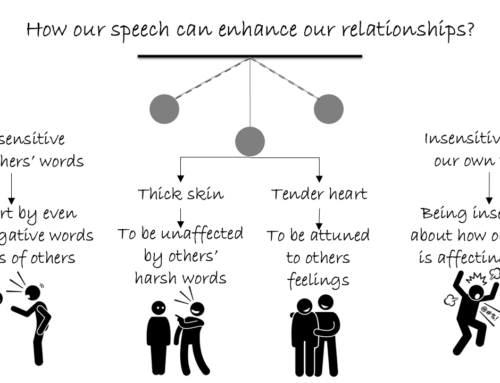Don’t forget to compliment those who complement you
We all have painful inadequacies that make us dependent on others who complement us. Indeed, almost all of life’s important responsibilities require us to work with others.
Consider parenting, the activity that ensures the perpetuation of our species: parenting. During both conceiving and rearing children, parents complement each other. Even in solo activities such as individual sports, say, chess or tennis, players are complemented by their coaches.
When we work closely with others, that closeness can be eroded by two factors: friction and entitlement. Friction is inevitable because people working together often differ over various things, small or big. An entitlement mentality seeps in when we start taking them for granted, believing that they are meant to do what they are doing for us.
Both these dangers can be minimized if we learn to regularly compliment those who regularly complement us. Pertinently, the Bhagavad-gita (17.15) recommends that we discipline our speech so that it is not just truthful and beneficial, but also non-agitating and pleasing. Instead of catching others when they do wrong and criticizing them, we can catch them when they do right and appreciate them. By offering genuine compliments regularly, we can strengthen and sweeten our relationships. Thereafter, whenever any unpalatable truths need to be spoken, it won’t cause too much hurt.
To exercise such verbal discipline in our relationships, we need inner calm and clarity. An accessible and reliable way of getting such stability is by connecting with the supremely stable reality, Krishna. We are his eternal parts – he is the whole; connecting with him complements us. And one time-honored way to connect with him is by complimenting him, by speaking his glories in our prayers to him and by sharing those glories with others.
When we compliment the divine who eternally complements us, we can more easily compliment all others who presently complement us.
Think it over:
- Why do we need others to complement us?
- How can close relationships get eroded?
- How can we train ourselves to compliment others?
***
17.15 Austerity of speech consists in speaking words that are truthful, pleasing, beneficial, and not agitating to others, and also in regularly reciting Vedic literature.
To know more about this verse, please click on the image
Explanation of article:
https://www.youtube.com/watch?v=8MRICMeiVp0&feature=youtu.be
Podcast:




Leave A Comment